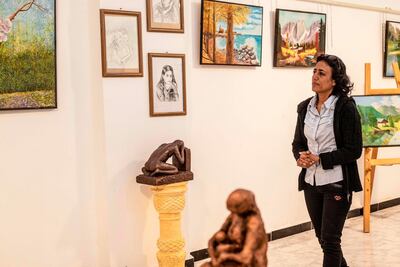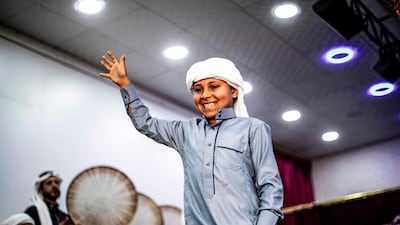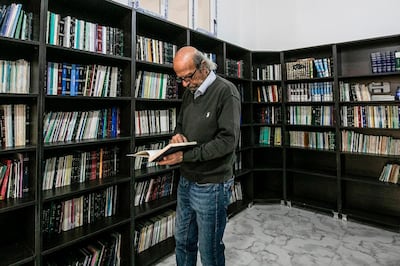More than a year after ISIS fled, Syrian boys and girls are finally back on stage - bobbing to the rhythm of drums in the northern city of Raqqa.
At the first cultural centre to open since ISIS's draconian rule ended, sunlight floods into the brand-new library, while books line shelves along a wall that still smells of wet paint.
After almost four years under ISIS, which banned music and the arts, US-backed forces expelled the last ISIS fighters from Raqqa in October 2017.
But it's taken a bit of time to resuscitate cultural life.
"I can't describe how happy I am," said Fawzia al-Sheikh at the centre's opening earlier this month, in the still largely devastated city. "After all this destruction, and no arts or culture, we finally have a centre where we can listen to song and poetry" again, the Raqqa resident added.
In the Raqqa Centre for Arts and Culture's brightly lit gallery, paintings hang beside charcoal drawings, near sculptures of human figures. In the concert hall, Malak al-Yatim stepped off stage after performing - exhilarated to finally be able to sing in public again.
"I feel like a bird sweeping through the spring sky," he said.
Yatim added that ISIS smashed his instruments and banned him from singing. "We were like nightingales in a cage," he lamented. "If we did anything, they'd chop off our head or whip us."
ISIS overran Raqqa in 2014, making the city its de facto Syrian capital and imposing a brutal interpretation of Islam on everyone in its orbit.
Before ISIS arrived, the city had more than 20 cultural centres, the largest housing 60,000 books. But the extremists forced all these facilities to close, burning and destroying books and paintings.
But in the new centre's library, hundreds of volumes that survived the extremists adorn shelves.
"These books you can see - we saved them from the ruins," said Ziad al-Hamad, 62, the centre's director and member of the city council's culture and antiquities commission. "During ISIS rule, residents hid them wherever they could," al-Hama added. "When the city was liberated, they gave them back to us."
The Kurdish-led and US-backed Syrian Democratic Forces (SDF) expelled ISIS from the village of Baghouz, its last scrap of Syrian territory, in late March.
While the extremists have continued to claim deadly attacks in areas controlled by the SDF - including Raqqa - local artists have returned to their easels.

In the cultural centre's gallery, painter Amal al-Attar has work on display after returning from exile in Beirut. Among her pieces is a painting of a white boat adrift on an ocean, and another of a home on the shoreline.
"It's like a re-birth," the 37-year-old said of the centre's opening.
Attar used to run a studio for artists, but when ISIS overran the city they told her art was forbidden. She left 50 works behind when she fled to neighbouring Lebanon.
"ISIS burned them," she said. "I can't forget what happened back then, but this cultural centre will give us a new drive."


